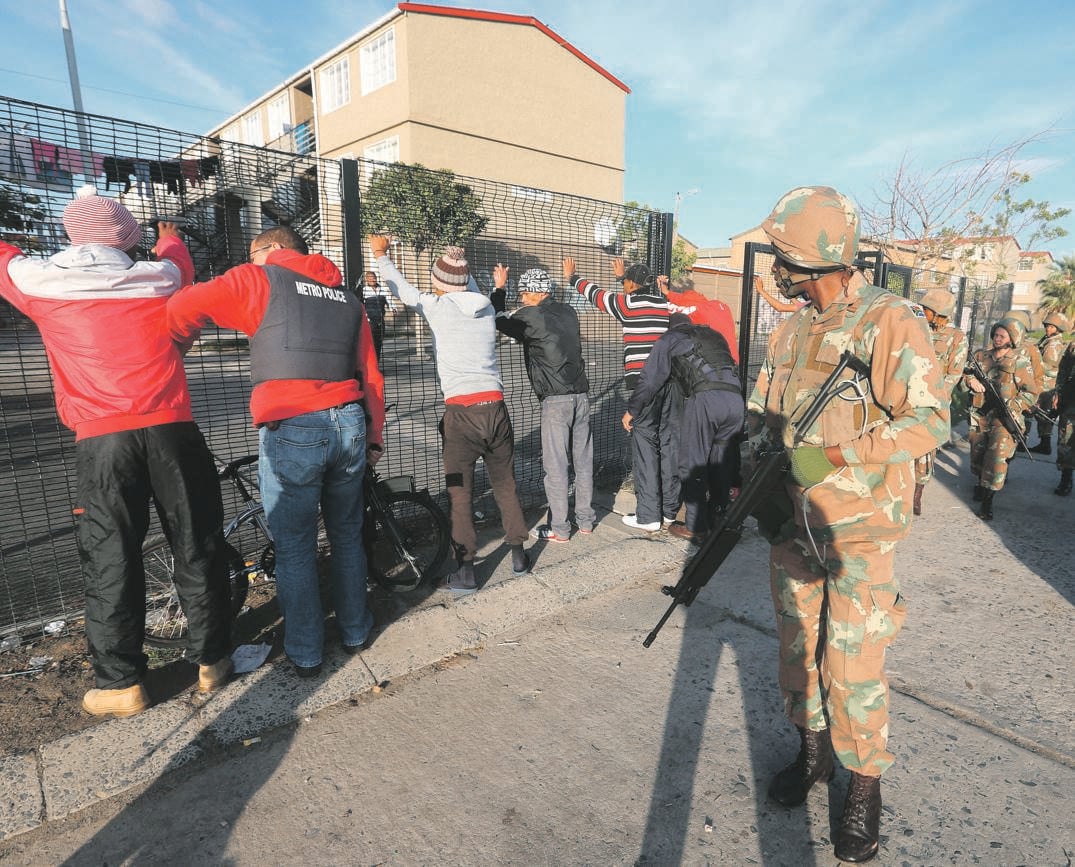In this extract from The Enforcers, Caryn Dolley writes about what happens when spy equipment falls into the wrong hands and the political fallout that follows
The Enforcers – Inside Cape Town’s Deadly Nightclub Battles by Caryn Dolley
Jonathan Ball Publishers
248 pages
R240
Confidential and/or manufactured data are a rich underworld currency that increases in value as political happenings, as well as criminal investigations, develop.
False claims presented as fact or leaked information, or a combination of both, can prove as dangerous as a weapon, ruining lives or putting them at risk.
It’s in this opaque realm that the aptly named “grabber” fits.
Properly called an international mobile subscriber identity catcher, it’s an extremely expensive kind of “fake” mobile tower, a telephone eavesdropping device used for intercepting cellphone traffic and tracking the location of cellphone users.
In South Africa, a grabber is listed equipment, meaning that a certificate is needed from a relevant government minister to obtain one.
Double agent George “The Butcher” Darmanovic had, in 2015, allegedly illegally imported a grabber from Libya, in conjunction with, among others, an ex-SA National Defence Force lieutenant who was, like Darmanovic, apparently a member of one of former president Jacob Zuma’s parallel intelligence structures.
A grabber was also linked to the May 2015 arrest of crime intelligence officer Paul Scheepers, following a raid at his office at the police’s provincial crime intelligence headquarters in Bishop Lavis – a Cape Town suburb widely known as 28s gang turf – as well as at the offices of his private investigations company Eagle Eye Solutions Technology in Southfield.
In 2010, the year after the DA took over the running of the Western Cape from the ANC, Eagle Eye Solutions Technology was awarded a tender to sweep the Western Cape government offices for bugs.
Years later, in 2015, the ANC in the province voiced its belief that Scheepers had actually been a spy, illegally monitoring members of the ANC for the premier of the Western Cape, who at that stage was Helen Zille and who vehemently denied this.
In any event, Scheepers – an unassuming man who by all accounts was exceptionally skilled at discreetly acquiring information of all kinds – was arrested in May 2015 and faced charges including allegedly violating the Electronic Communications Act by being in possession of a grabber.
The device, as alleged in the charge sheet, was delivered to Scheepers in Cape Town and installed in a Toyota Fortuner, a fleet vehicle for a Johannesburg-based company providing cash-in-transit security services.
Scheepers unsuccessfully tried to get a court to order that items seized from him during the raid at his private office be returned, stating that he believed the search warrant had been obtained for “ulterior purposes”.
He explained that he’d been a unit commander in the Western Cape’s crime intelligence division, and that his duties had included gathering information on alleged crimes and working with informers and sources relating to drug-trafficking syndicates.
Most of his work was done covertly because he worked with undercover informants and agents, he said.
“During early 2015 three of my informers reported to me on various occasions that a high-ranking officer in the SA Police Service regularly attended meetings with very well-known drug lords and criminal gang bosses … in the Western Cape. During such meetings discussions took place about undermining rival gangs and the way of ensuring distribution of drugs in the Western Cape,” Scheepers claimed.
“The senior officer, on several occasions, received huge amounts of money for the exchange and delivery of drugs.”
This echoed similar claims made by informants who’d approached Dan Plato and who added to the growing mountain of claims being made against Jeremy Vearey.
A warrant officer attached to the Western Cape’s crime intelligence unit, who’d been present when Scheepers was arrested, said the removal of items by police from the office was irregular.
He gave Scheepers a glowing character reference, calling him a brave and highly experienced officer who operated “with honesty and integrity”.
In October 2015, Helen Zille, in her capacity as Western Cape premier, wrote about the saga, saying that Scheepers had alleged that items had been unlawfully seized from his private office “after three of his informers had provided him with sensational information asserting the involvement of high-ranking police officers in corruption, and of links between the drug trade, gangs, and politics in the Western Cape”.
“Could it be that there is a deliberate political strategy, involving high-ranking police officers and politicians, to ensure that gangs, drugs and crime continue to destabilise the Western Cape?” she asked.
In November 2015, while the Scheepers matter was still being picked apart by politicians, Zille turned the tables on those in the ANC claiming that Scheepers was acting as a spy for her, saying it was in fact her phone that had been bugged and that she’d been tipped off to this by a police officer.
“The ANC should be in the dock answering very serious allegations about intercepting people’s calls and of collusion with police and gang lords to influence the 2016 election in this province,” she said.
Zille’s words about cops, politicians and gang bosses conspiring to influence an election were along the same lines as the claims made by the late Jeffrey Franciscus in his “Plato dossier”, and informant Pierre Mark Wyngaardt had also touched on the subject.
Then there was the other theory: That intelligence operatives with longstanding apartheid-rooted grudges could have created the idea that figures within the ANC were working with gangsters, and that these operatives may have used proxies to feed this narrative to those who most craved it, the politically opposing DA.




 Publications
Publications
 Partners
Partners










